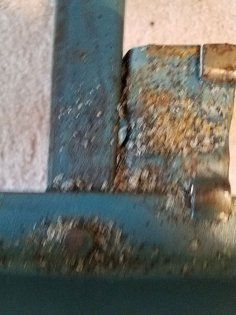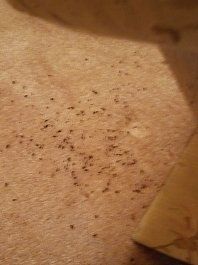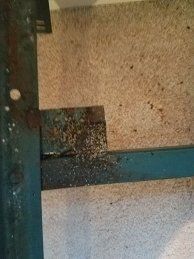Bed Bug Extermination Services in Middle Tennessee and Southern Kentucky
We offer a 100% money-back guarantee for bed bug treatments if you are not satisfied with the end result!
Bed Bug Heat Treatment
Bed bugs reach epidemic proportions. Dr. Michael Potter, University of Kentucky entomologist, was quoted recently as saying, “Bed bugs are just going ballistic everywhere. It is going to really rock this country.” Bed bugs are found today in hotels, apartments, dorm rooms, delivery vehicles, dry cleaners, jails, hospitals, churches, cruise ships, furniture rental stores, and private homes.
Rare for a time, bed bug bites are becoming all too common. Because pesticides are losing their effectiveness at treating bed bugs, the search is on for new ways to eliminate infestations.
Heat kills bed bugs without harming the environment; using heat to kill bed bugs and the eggs they leave behind. And, since heat can be effective in a single bed bug treatment, it can be more cost-effective than chemical alternatives which can often require the replacement of bedding and even mattresses.

What Are Bed Bugs?
Bed bugs are small, oval insects that live in dark spaces close to their food source and feed at night. They range in size from 1/4” to 3/8” long and are mahogany or red brown in color.
Bed bugs were widespread before World War II in homes, hotels, and boarding houses, but were greatly reduced with the use of the pesticide DDT. Bed bugs have been making resurgence in recent years due to the banning of DDT, an increase in international travel, and a developing resistance to pesticides.
Bed bugs commonly reside in the seams of mattresses, in the edges of carpeting, in the bed frame behind baseboards, in window and door casings, picture frames, loosened wallpaper, and other cracks and crevices.

Bed bugs can enter a structure by attaching themselves or their eggs to clothing and bedding and by hiding in luggage. They have often been brought into homes in used furniture and mattresses. In certain cases the pests may be brought in by birds or even bats.
Bed bug bites are not always noticed by their victims. This is often the problem with knowing whether an infestation still exists or if it has been successfully treated. Some people are greatly affected by bed bug bites and may exhibit numerous sores, welts, and allergic reactions to the bed bug bite. Others may not exhibit symptoms at all. Although no known cases of the transmission of infectious disease have been reported, bed bugs are known to carry at least 28 different human pathogens. It appears the bed bug may be able to transmit Hepatitis B, as the virus has been found in bed bug droppings. Bacterial infections may also occur if the bite creates an open sore.

Don’t Let the Bed Bugs Bite
State-Line heat treatment is a superior solution to eliminate bed bug infestations. This non-chemical, non-toxic approach penetrates wall cavities, mattresses and other hard to reach locations to kill bed bugs. By applying heat evenly throughout a structure, we can kill bed bugs wherever they are hiding, something many other treatments cannot achieve in a single treatment. State-Line heat treatment will kill all the growth stages of the bed bug including the eggs.
This is an important fact given that not all current pesticide control methodologies kill bed bug eggs. This means that oftentimes State-Line heat treatment can eradicate the entire bed bug population in a single treatment.
There is considerable documentation citing the temperature and time correlations necessary to kill bedbugs and their eggs. Several sources report that adults and nymphs die within 15 minutes at temperatures greater than 113ºF and 60 minutes to kill eggs. Raising room temperatures above the thermal death point and maintaining that temperature for several hours normally eliminates a bed bug infestation.
Need more information? Call us at 615-859-4808 to speak with one of our experts.






